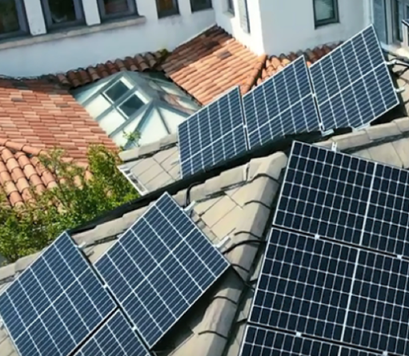In
the dynamic landscape of modern business, sustainability has emerged as a
guiding principle, shaping strategies that not only benefit the bottom line but
also the planet. One technological innovation at the forefront of this green
revolution is the sun solar inverter. In this exploration, we delve into how
businesses are harnessing the power of sun solar inverters to meet their energy
needs sustainably, ushering in a new era of cost-efficiency and environmental
responsibility.
The Rise of Solar in Commercial Spaces
As
the world grapples with the challenges of climate change, businesses are
increasingly recognizing the importance of adopting eco-friendly practices.
Solar energy, with its renewable and abundant nature, has become a beacon of
hope. Sun solar inverters play a pivotal role in commercial solar
installations, enabling businesses to convert sunlight into a clean and
cost-effective power source.

Motivations for Utilizing Sun Solar Inverters in
Commercial Settings
Reducing Operational Costs
One
of the primary motivations for businesses to embrace solar power is the
potential for significant cost savings. Traditional energy sources, often
reliant on fossil fuels, come with volatile and unpredictable pricing. Sun
solar inverters, coupled with photovoltaic panels, allow businesses to generate
their own electricity, providing a stable and predictable energy source that
shields them from the volatility of the energy market. Moreover, many regions
offer incentives, tax credits, and rebates for businesses adopting solar power.
This further enhances the financial appeal, making the initial investment in
solar infrastructure more accessible and attractive to businesses of varying
sizes.
Environmental Impact: Reducing Carbon Footprints
Beyond
financial gains, businesses are increasingly motivated by a sense of
environmental responsibility. Sun solar inverters contribute to the reduction
of carbon footprints by facilitating the use of clean, renewable energy. Unlike
traditional energy sources that release harmful greenhouse gases into the
atmosphere, solar power is a clean and sustainable alternative. Commercial
enterprises adopting solar energy send a powerful message to customers,
stakeholders, and the community at large. It reflects a commitment to
environmental stewardship and positions the business as a responsible player in
the fight against climate change.

Grid Independence and Energy Security
Sun
solar inverters empower businesses to achieve a degree of energy independence
by allowing them to generate power on-site. This is particularly advantageous
during times of peak demand or in regions where the grid is less reliable.
Businesses can ensure a continuous power supply, safeguarding operations and
critical systems even during grid outages. In addition, excess energy generated
can be stored in battery systems, providing a buffer during periods of low
sunlight. This further enhances energy resilience and mitigates the impact of
intermittent solar availability.
Scalability and Future-Proofing
Sun
solar inverters offer businesses scalability in their energy solutions. As
energy needs grow or as technology advances, businesses can easily expand their
solar infrastructure. This scalability ensures that the initial investment
remains a valuable asset, adapting to the evolving energy landscape and
future-proofing the business against rising energy costs.
Conclusion: Illuminating the Path Forward
As
businesses continue to embrace the power of the battery inverter solar system, a transformative shift is underway in the commercial energy
landscape. Beyond the immediate benefits of cost savings and environmental
impact reduction, businesses are redefining their role in society. They are
becoming active contributors to a sustainable future, harnessing the abundant
power of the sun to illuminate a path forward that is both economically viable
and environmentally responsible. In the journey to power the future, sun solar
inverters stand as catalysts of change, empowering businesses to thrive in a
world that demands both profitability and planet-friendly practices.
